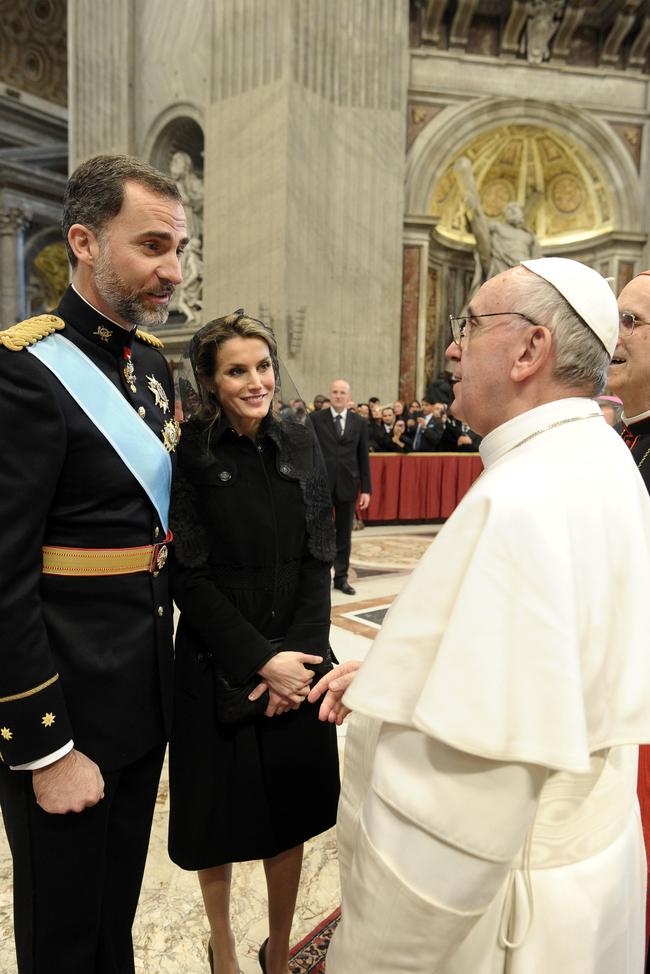Pope Francis, the 266th pope of the Roman Catholic Church, has been a figure of significant influence since his election in 2013. Known for his humility, focus on social justice, and interfaith dialogue, Pope Francis has endeavored to bridge gaps between different religious communities. His leadership style emphasizes inclusivity and compassion, which has resonated with many across the globe, making him a pivotal figure in discussions about unity among diverse faiths.
The concept of a one-world religion is both intriguing and controversial, sparking debates about unity and diversity in spiritual beliefs. As global leaders increasingly engage in interfaith dialogues, the idea of fostering peace and cooperation through shared values becomes more prominent. Pope Francis's initiatives have placed him at the forefront of these efforts, raising questions about the implications of such movements for traditional religious identities and practices. This article explores the significance of recent developments under Pope Francis's guidance, focusing on the potential emergence of a unified global religious framework.
Interfaith Covenant: A Step Towards Global Unity
A historic interfaith covenant was signed in the Middle East, marking a significant milestone in the pursuit of global harmony. The document, titled “A Document on Human Fraternity for World Peace and Living Together,” was jointly declared by Pope Francis and Sheikh Ahmad el-Tayeb, the Grand Imam of Al-Azhar, one of Sunni Islam's most prestigious institutions. This agreement symbolizes a commitment to fostering mutual respect and understanding between Christianity and Islam, two of the world's largest religions.
The signing ceremony took place in Abu Dhabi, where leaders from various faiths gathered to witness this unprecedented event. By joining hands, Pope Francis and Sheikh Ahmed al-Tayeb demonstrated their dedication to promoting peace and coexistence. Their collaboration underscores the importance of dialogue as a means to address common challenges faced by humanity, such as poverty, conflict, and environmental degradation.
This initiative has drawn attention from around the globe, yet it remains largely unnoticed by mainstream American media outlets. Critics argue that insufficient coverage might hinder public awareness and engagement with the message of unity conveyed through this covenant. Nevertheless, supporters believe that this step could pave the way for broader acceptance and cooperation among diverse religious groups worldwide.
Unity Amidst Diversity: Challenges and Opportunities
Some non-Catholic individuals express concerns regarding Pope Francis's involvement in creating what they perceive as a movement towards a single world religion. They question whether such actions align with the core tenets of Catholicism or other established faiths. However, proponents emphasize that these efforts aim not to homogenize beliefs but rather to celebrate shared values while respecting differences.
In reality, the joint declaration focuses on enhancing mutual understanding and cooperation between Christians and Muslims without imposing uniformity. It calls for peaceful coexistence based on principles like justice, equality, and human dignity – ideals cherished across cultures and creeds. Thus, instead of erasing unique aspects of each tradition, this approach seeks to highlight universal themes that unite people regardless of their specific religious affiliations.
While some may view this trend skeptically, others see it as an opportunity to foster greater harmony within an increasingly interconnected world. By engaging in open conversations and collaborative projects, religious leaders can inspire followers to embrace diversity and work together toward common goals, ultimately strengthening societal bonds and promoting global stability.
Building Bridges Through Interfaith Collaboration
Pope Francis continues to advocate for interfaith partnerships aimed at addressing pressing global issues, including climate change and social inequality. In a recent address, he urged all world religions to unite against environmental destruction caused by greed and exploitation. Such appeals reflect his vision of spirituality as a force for positive transformation, capable of inspiring collective action for the betterment of humanity.
Additionally, during meetings with Muslim representatives, Pope Francis has emphasized the importance of friendship between Christians and Muslims. He encourages dialogue and cooperation as pathways to overcoming prejudice and misunderstanding. These interactions serve as reminders that despite theological distinctions, there exist fundamental similarities in aspirations for peace, justice, and compassion among adherents of different faiths.
Plans are underway to establish a physical representation of this ideal—the Abrahamic Family House—set to open in 2022. Located on Saadiyat Island in Abu Dhabi, this facility will house places of worship for Judaism, Christianity, and Islam, symbolizing the potential for peaceful coexistence and shared reverence for divine teachings. As such endeavors progress, they offer hope for a future characterized by increased solidarity and mutual respect among peoples of all backgrounds.

